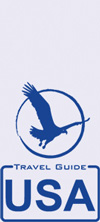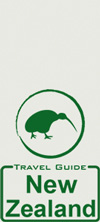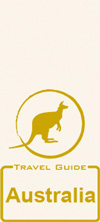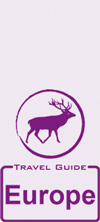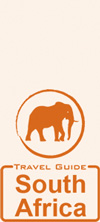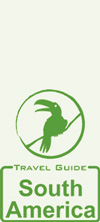Travel Scout
Tours Calendar
Booking
Special Offers
Package Tours
Special Event Tours
Destinations
- USA / America
- New Zealand
- Australia
- Canada
- Europe
- South Africa
- Asia
- South America
Activities
- Motorcycle Tours
- Scooter Tours
- Photo Tours
- Adventure Tours
- Car Tours
- Incentive Tours
- Snowmobile Tours
- Bicycle Tours
- Golf Tours
- Hiking Tours
- Wellness Tours
- Private Tours
Rentals
- Motorcycle Rental
- Car Rental
- RV Motorhome Rental
Flight Booking
Travel Insurance
Travel Financing
Reuthers Rewards
Travel Guide
Travel Guide Europe
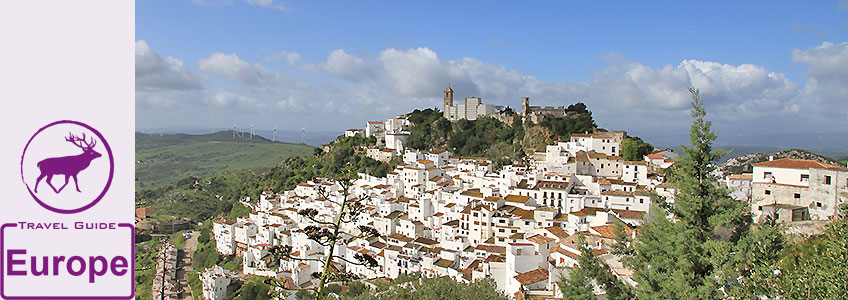
Please find as follows some useful travel tips for Europe:
In nine different tours Reuthers clients can experience Europe.
Germany has established itself since the 2006 FIFA World Cup again as a tourist destination for visitors from around the world. Most come to see the romantic old castles along the Rhine and visit the south where the fairy tale castle Neuschwanstein is the undisputed darling of all tourists. But also the modern bustling cities such as Berlin, Hamburg, Cologne and Munich attract more visitors. Besides the German coasts by the North Sea and the Baltic Sea that attract mainly local tourists, Bavaria is still the most popular holiday region. The gorgeous scenery of the snow-capped Alps that rise behind green meadows and deep blue mountain lakes, is spellbinding for everyone. Reuthers has three tours in Germany in the program: the Alps & Lakes Tour, the Berlin-Moscow Tour and the Germania Tour.
The “Grande Nation” in the West of Europe is one of the most popular holiday destinations in the world. France is as famous for its kitchen and delightful wines as for picturesque landscapes of rough Brittany in the northwest up to the sund drenched hills of the Provence in the south. Also the many castles along the Loire, the beaches of the Cote d’Azur and the romantic vineyards of Alsace attract hundreds of thousands visitors each year. However, the main goal of all vacationers in France is Paris, the city of love, city of lights, and city of countless clichés. In Paris history was written since the early Middle Ages: In the former city palace Louvre, on the Place du Grève before the city hall and of course, in the Palace of Versailles. On the Alps & Lakes Tour Reuthers dedicates a trip to France
The green island of Ireland can look back on a very eventful past. The antique kingdom was converted very early to Christianity and belongs to this day to the most religious countries of Europe. Later came the Vikings who regularly looted the Irish coasts. Normans followed – and, finally, the English who wanted to colonize their neighboring country and with it laid the foundation-stone for a conflict which continues till this day. In the 19th century millions of Irish people immigrated to the USA. In 1916 the foundation-stone was laid with the Easter Rising for the Irish independence which came into force in 1923. However only the Republic of Ireland in the south became independent. Northern Ireland dominated by British Protestants remained as a part of the United Kingdom. The conflicts with the IRA, which continued until the 80s, now belong to the past. Northern Ireland with its beautiful, shipbuilding capital Belfast can be visited without worries as well as the southern part of Ireland. Ireland is known for its Celtic past, Irish-Gaelic music and pubs with live music. Reuthers dedicates an own tour for Ireland travelling on the coast of the island in eight days.
"Bella Italia" awaits you with an unbelievable amount of cultural treasures. In the northern half of the boot are the splendid old towns which were in the Renaissance independent principalities whose princes wanted to outdo each other with palaces and pieces of art, as well as the unique lagoon town of Venice which was an independent republic until the 19th century. In the middle of the country sits the capital city of Rome, once the center of the Roman Empire, which stretched from todays Scotland to the Red Sea. Even today monuments such as the Colosseum and the Pantheon reflect the splendor of Ancient times. Behind Naples begins one of the most exciting coastal roads of Europe, which leads to the beautiful Amalfi coast and allows a view of the holiday islands such as Capri and Ischia in the Gulf of Naples. The hot south of Italy is characterized by rough landscapes and beautiful sandy beaches. Two routes lead the friends of the ancient Romans to Italy: The Bella Italia Tour lasts nine days and the Tuscany Tour seven days.
Scotland occupies the northern part of the British Isles - a historic separation that was set over 2000 years ago when the Romans built Hadrian's Wall across the country in order to protect themselves against the "savages" in the north. In the Middle Ages Scotland was involved as an independent kingdom over and over again in wars against the English who wanted to conquer the north. Among the most famous freedom fighters for the Scottish independence were Rob Roy and William Wallace. At the beginning of the 18th century Scotland gave up its independence in order to facilitate trade with England and entered and joined the "United Kingdom" with England, Wales and Ireland. Since 1998 Scotland has its own parliament again and its own government whose power is reduced to Internal-Scottish matters. Tourists in Scotland recognize the exceptional Scottish position especially with the Scottish pound notes, which are used in addition to the regular pound notes everywhere in Scotland. The eight day Scotland Tour leads to Loch Ness and other tourist attractions in the north of Britain.
Switzerland has a special position in Europe: Thanks to its neutrality anchored in the law it is till this day not a member of the EU, however, since 2008 an associate member of the Schengen Agreement. Switzerland joined the United Nations in 2002, although several UN institutions are resident in Geneva. The Swiss confederation and thus the official title of the country go back to an alliance of the old cantons Uri, Schwyz and Unterwald from 1291. In 1848 today’s Switzerland as founded with a total of 26 cantons. Switzerland, still officially has four languages (Rhaeto-Romanic, Italian, French, German). On the Alps & Lakes Tour Reuthers makes a detour to Switzerland.
Spain takes the greater part of the Iberian Peninsula and impresses with changing landscapes from the snow-covered Pyrenees in the north to the hot plains in the deep south. Today Spain is a popular vacation destination for Northern Europeans traveling in the summer to the Spanish beaches to enjoy the many hours of sunshine and the pleasant climate. Several centuries ago Spain was the richest country in the world, that benefited mainly from its huge colonial empire in South and Central America and the gold and silver treasures found there. This wealth is reflected today in the many magnificent cathedrals and palaces that can be found everywhere in Spain. The most southern province Andalusia was of all Spanish regions controlled the longest by the Islamic Moors who came through Morocco to the Iberian Peninsula and left unique architectural beauties such as the Alhambra in Granada and the Alcazar Palace in Seville. Particularly in Cordoba the tracks of the long religious conflicts can be pursued in Southern Spain: In the old Moorish Mosque (Mezquita), the Christians built after the Reconquest a cathedral, and created so a unique building. Andalusia is the destination of Spain which also includes a short trip to Portugal.
For our Berlin-Moscow Tour please find an overview about the Visa Policy for Russia and Belarus (both countries are not part of the European Union). We recommend to use the service of a Visa specialist in your home country.
Other useful travel information in the overview:
Anyone who wishes to enter Europe (depending on the country of origin) must meet various conditions for entry. Citizens of the European Union must not show a passport, however, they should carry it along. Nationals from non-EU countries must submit an entry visa in addition to their passport. Nationals of non-EU countries (with a few exceptions) need a > Visa for Europe | United Kingdom
The European Commission informs about > country-specific customs regulations Europe | United Kingdom
Anyone who travels to Europe, should check their vaccination record and compare it with the > recommendations of the World Health Organization.
Also the most important > traffic rules in Europe are summarized here.
The valid EU emergency phone number is 112.
The climate ranges from sub-tropical representatives in the south to temperate climate in the north. From the west to the east the continental climate increases. More information about the > current weather in Europe.
With a view to electricity and technology in the country: The voltage is 230 volts. Reuthers recommends bringing appropriate adapters from home in order to operate your own devices. Those who wish to avoid expensive roaming charges abroad, can rely on a prepaid SIM card. These can be bought at the airport and in supermarkets > International Dialing Codes.
Currency: Most European countries pay in "Euro". The countries traveled by Reuthers such as Germany, France, Ireland, Italy, Austria and Spain have the Euro as a currency. In Scotland and Northern Ireland you pay with British Pounds, in Switzerland with Swiss francs and in Russia with the ruble. Credit cards are accepted in all EU-countries.
Please note: All information subject to change.



